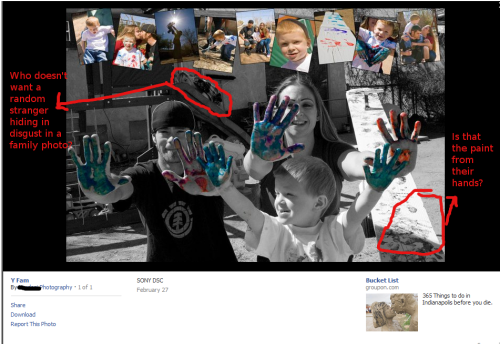A lot of people wonder how Chinese parents raise such stereotypically successful kids. They wonder what these parents do to produce so many math whizzes and music prodigies, what it's like inside the family, and whether they could do it too. Well, I can tell them, because I've done it. Here are some things my daughters, Sophia and Louisa, were never allowed to do:
Erin Patrice O'Brien for The Wall Street Journal Amy Chua with her daughters, Louisa and Sophia, at their home in New Haven, Conn.
• attend a sleepover
• have a playdate
• be in a school play
• complain about not being in a school play
• watch TV or play computer games
• choose their own extracurricular activities
• get any grade less than an A
• not be the No. 1 student in every subject except gym and drama
• play any instrument other than the piano or violin
• not play the piano or violin.
I'm using the term "Chinese mother" loosely. I know some Korean, Indian, Jamaican, Irish and Ghanaian parents who qualify too. Conversely, I know some mothers of Chinese heritage, almost always born in the West, who are not Chinese mothers, by choice or otherwise. I'm also using the term "Western parents" loosely. Western parents come in all varieties.
All the same, even when Western parents think they're being strict, they usually don't come close to being Chinese mothers. For example, my Western friends who consider themselves strict make their children practice their instruments 30 minutes every day. An hour at most. For a Chinese mother, the first hour is the easy part. It's hours two and three that get tough.
When it comes to parenting, the Chinese seem to produce children who display academic excellence, musical mastery and professional success - or so the stereotype goes. WSJ's Christina Tsuei speaks to two moms raised by Chinese immigrants who share what it was like growing up and how they hope to raise their children.
Despite our squeamishness about cultural stereotypes, there are tons of studies out there showing marked and quantifiable differences between Chinese and Westerners when it comes to parenting. In one study of 50 Western American mothers and 48 Chinese immigrant mothers, almost 70% of the Western mothers said either that "stressing academic success is not good for children" or that "parents need to foster the idea that learning is fun." By contrast, roughly 0% of the Chinese mothers felt the same way. Instead, the vast majority of the Chinese mothers said that they believe their children can be "the best" students, that "academic achievement reflects successful parenting," and that if children did not excel at school then there was "a problem" and parents "were not doing their job." Other studies indicate that compared to Western parents, Chinese parents spend approximately 10 times as long every day drilling academic activities with their children. By contrast, Western kids are more likely to participate in sports teams.
What Chinese parents understand is that nothing is fun until you're good at it. To get good at anything you have to work, and children on their own never want to work, which is why it is crucial to override their preferences. This often requires fortitude on the part of the parents because the child will resist; things are always hardest at the beginning, which is where Western parents tend to give up. But if done properly, the Chinese strategy produces a virtuous circle. Tenacious practice, practice, practice is crucial for excellence; rote repetition is underrated in America. Once a child starts to excel at something—whether it's math, piano, pitching or ballet—he or she gets praise, admiration and satisfaction. This builds confidence and makes the once not-fun activity fun. This in turn makes it easier for the parent to get the child to work even more.
Chinese parents can get away with things that Western parents can't. Once when I was young—maybe more than once—when I was extremely disrespectful to my mother, my father angrily called me "garbage" in our native Hokkien dialect. It worked really well. I felt terrible and deeply ashamed of what I had done. But it didn't damage my self-esteem or anything like that. I knew exactly how highly he thought of me. I didn't actually think I was worthless or feel like a piece of garbage.
Chua family From Ms. Chua's album: 'Mean me with Lulu in hotel room... with score taped to TV!'
As an adult, I once did the same thing to Sophia, calling her garbage in English when she acted extremely disrespectfully toward me. When I mentioned that I had done this at a dinner party, I was immediately ostracized. One guest named Marcy got so upset she broke down in tears and had to leave early. My friend Susan, the host, tried to rehabilitate me with the remaining guests.
The fact is that Chinese parents can do things that would seem unimaginable—even legally actionable—to Westerners. Chinese mothers can say to their daughters, "Hey fatty—lose some weight." By contrast, Western parents have to tiptoe around the issue, talking in terms of "health" and never ever mentioning the f-word, and their kids still end up in therapy for eating disorders and negative self-image. (I also once heard a Western father toast his adult daughter by calling her "beautiful and incredibly competent." She later told me that made her feel like garbage.)
Chinese parents can order their kids to get straight As. Western parents can only ask their kids to try their best. Chinese parents can say, "You're lazy. All your classmates are getting ahead of you." By contrast, Western parents have to struggle with their own conflicted feelings about achievement, and try to persuade themselves that they're not disappointed about how their kids turned out.
I've thought long and hard about how Chinese parents can get away with what they do. I think there are three big differences between the Chinese and Western parental mind-sets.
![[chau inside]](http://si.wsj.net/public/resources/images/RV-AB159_chau_i_DV_20110107132319.jpg) Chua family
Chua family Newborn Amy Chua in her mother's arms, a year after her parents arrived in the U.S.
First, I've noticed that Western parents are extremely anxious about their children's self-esteem. They worry about how their children will feel if they fail at something, and they constantly try to reassure their children about how good they are notwithstanding a mediocre performance on a test or at a recital. In other words, Western parents are concerned about their children's psyches. Chinese parents aren't. They assume strength, not fragility, and as a result they behave very differently.
For example, if a child comes home with an A-minus on a test, a Western parent will most likely praise the child. The Chinese mother will gasp in horror and ask what went wrong. If the child comes home with a B on the test, some Western parents will still praise the child. Other Western parents will sit their child down and express disapproval, but they will be careful not to make their child feel inadequate or insecure, and they will not call their child "stupid," "worthless" or "a disgrace." Privately, the Western parents may worry that their child does not test well or have aptitude in the subject or that there is something wrong with the curriculum and possibly the whole school. If the child's grades do not improve, they may eventually schedule a meeting with the school principal to challenge the way the subject is being taught or to call into question the teacher's credentials.
If a Chinese child gets a B—which would never happen—there would first be a screaming, hair-tearing explosion. The devastated Chinese mother would then get dozens, maybe hundreds of practice tests and work through them with her child for as long as it takes to get the grade up to an A.
Chinese parents demand perfect grades because they believe that their child can get them. If their child doesn't get them, the Chinese parent assumes it's because the child didn't work hard enough. That's why the solution to substandard performance is always to excoriate, punish and shame the child. The Chinese parent believes that their child will be strong enough to take the shaming and to improve from it. (And when Chinese kids do excel, there is plenty of ego-inflating parental praise lavished in the privacy of the home.)
Chua family Sophia playing at Carnegie Hall in 2007.
Second, Chinese parents believe that their kids owe them everything. The reason for this is a little unclear, but it's probably a combination of Confucian filial piety and the fact that the parents have sacrificed and done so much for their children. (And it's true that Chinese mothers get in the trenches, putting in long grueling hours personally tutoring, training, interrogating and spying on their kids.) Anyway, the understanding is that Chinese children must spend their lives repaying their parents by obeying them and making them proud.
By contrast, I don't think most Westerners have the same view of children being permanently indebted to their parents. My husband, Jed, actually has the opposite view. "Children don't choose their parents," he once said to me. "They don't even choose to be born. It's parents who foist life on their kids, so it's the parents' responsibility to provide for them. Kids don't owe their parents anything. Their duty will be to their own kids." This strikes me as a terrible deal for the Western parent.
Third, Chinese parents believe that they know what is best for their children and therefore override all of their children's own desires and preferences. That's why Chinese daughters can't have boyfriends in high school and why Chinese kids can't go to sleepaway camp. It's also why no Chinese kid would ever dare say to their mother, "I got a part in the school play! I'm Villager Number Six. I'll have to stay after school for rehearsal every day from 3:00 to 7:00, and I'll also need a ride on weekends." God help any Chinese kid who tried that one.
Don't get me wrong: It's not that Chinese parents don't care about their children. Just the opposite. They would give up anything for their children. It's just an entirely different parenting model.
Here's a story in favor of coercion, Chinese-style. Lulu was about 7, still playing two instruments, and working on a piano piece called "The Little White Donkey" by the French composer Jacques Ibert. The piece is really cute—you can just imagine a little donkey ambling along a country road with its master—but it's also incredibly difficult for young players because the two hands have to keep schizophrenically different rhythms.
Lulu couldn't do it. We worked on it nonstop for a week, drilling each of her hands separately, over and over. But whenever we tried putting the hands together, one always morphed into the other, and everything fell apart. Finally, the day before her lesson, Lulu announced in exasperation that she was giving up and stomped off.
"Get back to the piano now," I ordered.
"You can't make me."
"Oh yes, I can."
Back at the piano, Lulu made me pay. She punched, thrashed and kicked. She grabbed the music score and tore it to shreds. I taped the score back together and encased it in a plastic shield so that it could never be destroyed again. Then I hauled Lulu's dollhouse to the car and told her I'd donate it to the Salvation Army piece by piece if she didn't have "The Little White Donkey" perfect by the next day. When Lulu said, "I thought you were going to the Salvation Army, why are you still here?" I threatened her with no lunch, no dinner, no Christmas or Hanukkah presents, no birthday parties for two, three, four years. When she still kept playing it wrong, I told her she was purposely working herself into a frenzy because she was secretly afraid she couldn't do it. I told her to stop being lazy, cowardly, self-indulgent and pathetic.
Jed took me aside. He told me to stop insulting Lulu—which I wasn't even doing, I was just motivating her—and that he didn't think threatening Lulu was helpful. Also, he said, maybe Lulu really just couldn't do the technique—perhaps she didn't have the coordination yet—had I considered that possibility?
"You just don't believe in her," I accused.
"That's ridiculous," Jed said scornfully. "Of course I do."
"Sophia could play the piece when she was this age."
"But Lulu and Sophia are different people," Jed pointed out.
"Oh no, not this," I said, rolling my eyes. "Everyone is special in their special own way," I mimicked sarcastically. "Even losers are special in their own special way. Well don't worry, you don't have to lift a finger. I'm willing to put in as long as it takes, and I'm happy to be the one hated. And you can be the one they adore because you make them pancakes and take them to Yankees games."
I rolled up my sleeves and went back to Lulu. I used every weapon and tactic I could think of. We worked right through dinner into the night, and I wouldn't let Lulu get up, not for water, not even to go to the bathroom. The house became a war zone, and I lost my voice yelling, but still there seemed to be only negative progress, and even I began to have doubts.
Then, out of the blue, Lulu did it. Her hands suddenly came together—her right and left hands each doing their own imperturbable thing—just like that.
Lulu realized it the same time I did. I held my breath. She tried it tentatively again. Then she played it more confidently and faster, and still the rhythm held. A moment later, she was beaming.
"Mommy, look—it's easy!" After that, she wanted to play the piece over and over and wouldn't leave the piano. That night, she came to sleep in my bed, and we snuggled and hugged, cracking each other up. When she performed "The Little White Donkey" at a recital a few weeks later, parents came up to me and said, "What a perfect piece for Lulu—it's so spunky and so her."
Even Jed gave me credit for that one. Western parents worry a lot about their children's self-esteem. But as a parent, one of the worst things you can do for your child's self-esteem is to let them give up. On the flip side, there's nothing better for building confidence than learning you can do something you thought you couldn't.
There are all these new books out there portraying Asian mothers as scheming, callous, overdriven people indifferent to their kids' true interests. For their part, many Chinese secretly believe that they care more about their children and are willing to sacrifice much more for them than Westerners, who seem perfectly content to let their children turn out badly. I think it's a misunderstanding on both sides. All decent parents want to do what's best for their children. The Chinese just have a totally different idea of how to do that.
Western parents try to respect their children's individuality, encouraging them to pursue their true passions, supporting their choices, and providing positive reinforcement and a nurturing environment. By contrast, the Chinese believe that the best way to protect their children is by preparing them for the future, letting them see what they're capable of, and arming them with skills, work habits and inner confidence that no one can ever take away.
—Amy Chua is a professor at Yale Law School and author of "Day of Empire" and "World on Fire: How Exporting Free Market Democracy Breeds Ethnic Hatred and Global Instability." This essay is excerpted from "Battle Hymn of the Tiger Mother" by Amy Chua, to be published Tuesday by the Penguin Press, a member of Penguin Group (USA) Inc. Copyright © 2011 by Amy Chua. 







![[chau inside]](http://si.wsj.net/public/resources/images/RV-AB159_chau_i_DV_20110107132319.jpg) Chua family
Chua family 




![If you advertise photography services, a photo might be nice. I guess if you’re only charging a $15 sitting fee, you can’t afford to take the time to upload a photo. // ]]]]>]]>](http://30.media.tumblr.com/tumblr_lhi3bdsfra1qgr205o1_500.png)

![Ginger and I have been rolling on the floor laughing since we opened our email to this. If you use PRO in all caps in the same breath as saying your client picks up her own pictures at Wal-Mart AND manage to misspell copyright, you might want to rethink your photography career. ]]>](http://27.media.tumblr.com/tumblr_lhezdudlqW1qgr205o1_400.png)




